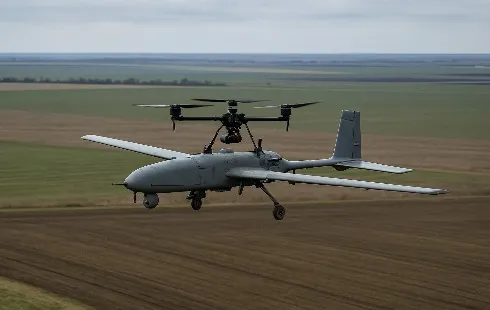
Ukraine Targets Outdated Military Equipment in Ongoing Conflict
Section: Politics
Germany is on the brink of a significant transformation as it navigates the dual challenges of a struggling automotive sector and a booming defense industry. With opportunities arising from the need for military expansion in the aftermath of geopolitical tensions, there is potential for the country to leverage its existing resources in the automotive industry to bolster its defense capabilities.
In recent months, major automotive manufacturers and their suppliers have announced plans to cut tens of thousands of jobs due to market contractions and a shift towards electric mobility. This situation presents a unique opportunity for defense companies such as Rheinmetall and Airbus, which are actively seeking to recruit skilled workers and potentially acquire production facilities from the automotive sector.
Guntram Wolff, a professor at the Solvay Brussels School of Economics and Management, suggests that the automotive industry possesses underutilized resources that could be redirected towards defense production. Economists from Deutsche Bank echo this sentiment, noting that reallocating automotive capacity to the defense sector could significantly reduce the costs associated with restructuring.
As Germany ramps up its defense spending, driven by the imperative to replenish military supplies and strengthen national security, the momentum for this shift could accelerate. The recent defense budget proposals, estimated to reach hundreds of billions of euros, signal a commitment to enhancing military readiness.
For instance, the defense conglomerate KNDS has recently announced plans to take over a railcar manufacturing facility from Alstom in Görlitz, Germany, with the aim of producing components for various military vehicles, including the Leopard 2 tank. However, the transition from rail to defense manufacturing will take time, as existing contracts for rail production remain in effect until 2026.
Germany's defense industry comprises a diverse array of companies, from small and medium-sized enterprises to established defense contractors, all contributing to the production of military equipment and technology. Major players such as Airbus Defence and Space, Rheinmetall, and Hensoldt are leading the charge in this sector.
Rheinmetall, for example, has plans to repurpose its automotive supply facilities to accommodate defense production. The company is exploring the feasibility of transforming its existing automotive operations into hybrid facilities that can support both sectors.
Additionally, Hensoldt, a specialist in defense electronics, is in discussions with automotive suppliers to onboard talented engineers and production specialists who are facing layoffs. This integration aims to capitalize on the expertise available within the automotive workforce, facilitating a smoother transition to defense manufacturing.
Despite these advancements, the production of military goods is subject to stringent regulations and security requirements, complicating the retrofitting of existing automotive plants. In some cases, it may be more efficient to establish new production facilities specifically designed for defense manufacturing.
As Germany's defense expenditures increase, the overall proportion of defense spending allocated for military procurement is becoming more significant. In 2024, this figure was reported to be around 27 percent of total defense spending, underscoring the growing emphasis on acquiring military capabilities.
In order to effectively expand production, defense contractors require clear and consistent planning from the government regarding future procurement needs. This includes establishing long-term contracts that ensure a steady flow of orders, which would incentivize investment in capacity expansion.
Experts emphasize the necessity of a comprehensive defense procurement strategy that outlines specific requirements and timelines, thereby providing manufacturers with the clarity needed to ramp up production effectively. Moreover, fostering collaboration among European nations in defense procurement could lead to more efficient resource allocation and procurement processes.
While the automotive industry has historically played a more significant role in Germany's economy, the current geopolitical landscape presents an opportunity for the defense sector to grow and evolve. As the country adapts to these changes, the integration of automotive expertise into defense manufacturing may pave the way for a more robust and responsive military industry.

Section: Politics

Section: News

Section: News

Section: Politics

Section: News

Section: News

Section: Politics

Section: Arts

Section: News

Section: News

Health Insurance in Germany is compulsory and sometimes complicated, not to mention expensive. As an expat, you are required to navigate this landscape within weeks of arriving, so check our FAQ on PKV. For our guide on resources and access to agents who can give you a competitive quote, try our PKV Cost comparison tool.

Germany is famous for its medical expertise and extensive number of hospitals and clinics. See this comprehensive directory of hospitals and clinics across the country, complete with links to their websites, addresses, contact info, and specializations/services.

Organizer: Irrtümer und Änderungen vorbehalten. Our accessibility service is available to assist individuals with disabilities during ticket purchases. For support related to wheelchair users, those with hearing or visual impairments, and others with special needs, please contact our accessibility...
No comments yet. Be the first to comment!